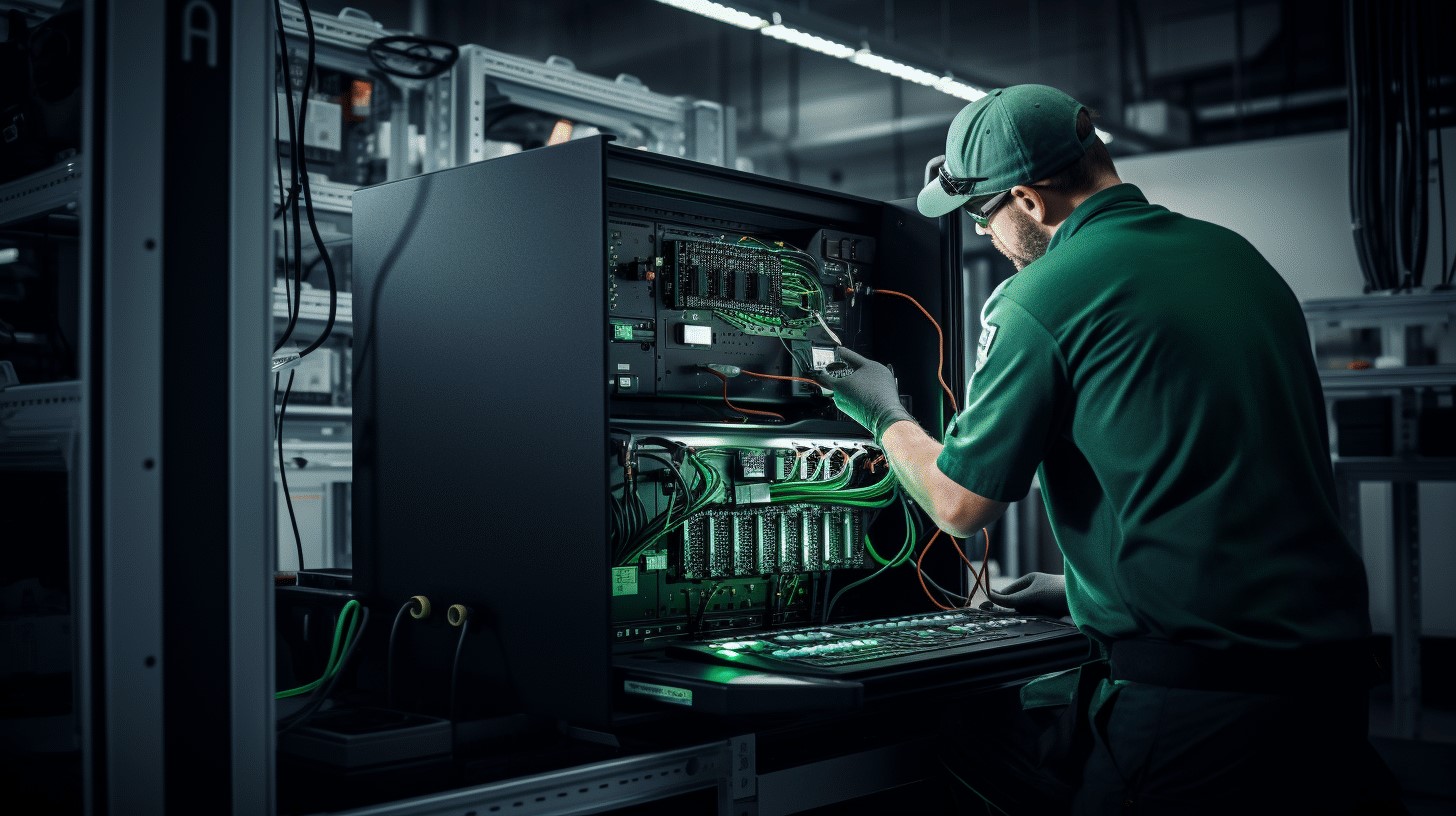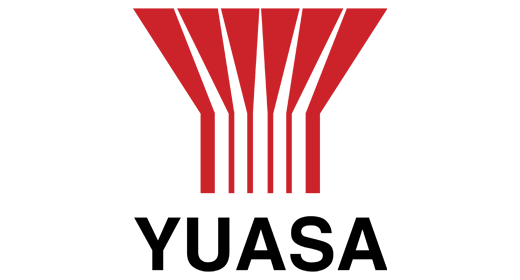Mastering UPS Maintenance for Large Enterprise Resilience
In the digitally driven age that we operate in today, the importance of having an uninterrupted power supply (UPS) for large-scale enterprises simply cannot be overstated. Neglecting this crucial facet can result in substantial operational disruptions, impeding productivity and potentially leading to significant financial losses. That's why, for companies operating crucial systems around the clock, the advent of UPS systems came as a game-changer.
However, ensuring seamless operations isn't solely about having a UPS in place; it's also about ensuring its optimal maintenance, which often tends to get overshadowed in discussions surrounding UPS systems. With this article, we aim to bring the focus onto the best practices for UPS systems maintenance and delve into why it holds the key to long-term, uninterrupted operations for large enterprises. Grab a cup of tea or coffee, sit back, and let's embark on this enlightening journey together.
Understanding Uninterruptible Power Supply Systems
From the successful despatch of business-critical communications to keeping digital data safe, power is the lifeblood of today's businesses. However, power disruptions can sometimes occur, and they can cause catastrophic damage in today's always-on, digital-first world. Enter Uninterruptible Power Supply Systems (UPS).
Definition and Function
Uninterruptible Power Supply Systems are technologies developed to tackle power disruptions and keep your business running smoothly. These systems serve as an immediate power source during blackouts, ensuring a seamless transition without any significant interruptions. In less technical language, UPS is your knight in shining armour during power interruption crises. It takes command immediately after detecting a power failure, providing enough time for a safe shutdown, or switching to a backup generator.
What does a UPS consist of? Well, the fundamental parts are:
- Battery (or batteries): The energy reservoir that stores power.
- Inverter: To convert the DC power from batteries into AC for use.
- Transfer switch: To initiate the UPS function when it spots an interruption or error.
The UPS should not be confused with a standby generator or power strips. While the latter two introduce a noticeable delay in power supply, the UPS transitions power supply instantly, eliminating the chance of any interruption.
Importance for Large Enterprises
For large enterprises, power disruptions can result in unimaginable losses such as damaged equipment, loss of data, decreased operational productivity, and diminished customer trust. Therefore, the need for reliable Uninterruptible Power Supply Systems in these organisations is not just a necessity, it's critical.
Let's delve into why a UPS system is a non-negotiable for large enterprises:
- Data Protection: Businesses today depend on data. From enterprise resource planning to customer relationship management, the bulk of these information systems are electronic. They need uninterrupted power for optimal operation. A sudden power outage can lead to data loss or, even worse, data corruption.
- Operational Continuity: Businesses cannot afford downtime. With a UPS, businesses ensure that crucial services and operations remain unaffected during power disruptions.
- Cost-saving: Unforeseen power interruptions can cause damage to sensitive equipment, leading to replacement costs. A UPS helps cushion enterprises from such unexpected expenses.
As you can see, Uninterruptible Power Supply Systems lay the solid foundation that allows today's businesses to run without fear of potential disruptive power outages. They offer a level of peace and security that is simply indispensable in smoothly running any large-scale enterprise. Power outages are inevitable, but how companies prepare and manage them makes all the difference. With a UPS, companies have the assurance that power disruptions won't disrupt their operations.

Maintenance of Uninterruptible Power Supply Systems
In the world of critical power solutions, Uninterruptible Power Supply (UPS) systems are absolute game-changers. They deliver continuous electrical energy supply, curbing power interruptions that could potentially disrupt business operations. However, the optimal performance of a UPS system is firmly rooted in regular and meticulous maintenance. So, let's explore the essential steps that must be integrated into a comprehensive UPS maintenance routine.
Overview of Maintenance Steps
For your UPS system to run smoothly and effectively, maintenance is a must and not just any kind of maintenance. The lifecycle of a UPS calls for a systematic and strategic approach when it comes to maintenance. Here's a breakdown:
- Routine Inspections: Just like a car needs regular check-ups, a UPS system needs routine inspections, to ensure all components are functioning correctly.
- Battery Care: The battery is the heart of any UPS system. Proper care should be taken to replace worn-out batteries and maintain the optimal functioning of the existing ones.
- Load Balancing: This ensures equal distribution of power across all electrical circuits, which is key to avoiding circuit failures.
- Changing Filters: Regularly replacing air filters guarantees the UPS system stays clean and dust-free.
Scheduled Maintenance
Scheduled maintenance forms an essential part of a well-maintained UPS system. It's like going for a regular health check-up - it helps diagnose any problems before they get out of hand. Key areas of focus during scheduled maintenance should include battery integrity, cooling systems, and dust accumulation. Regular software updates should also be catered for, as they help keep the UPS system updated with the latest technological advancements.
Unscheduled Maintenance
While scheduled maintenance is crucial, one shouldn't overlook the importance of unscheduled maintenance. This refers to repair work carried out in response to unexpected problems or emergencies with your UPS system.
Imagine driving along a highway and your car suddenly breaks down. Unscheduled maintenance is just like that-it tackles the problem head-on, ensuring your UPS system is back and running in no time. Be it a sudden battery failure, overheating, or any other technical glitch, unscheduled maintenance swoops in like a hero, ensuring minimal disruption to your business operations.
Understanding the essence of UPS system maintenance is the first step towards ensuring a consistent and reliable power supply. So, whether it's scheduled or unscheduled maintenance, each holds its distinct importance in the efficient handling of your UPS system. Remember, maintenance is not a one-time event-it's a continuous process. So, ensure your UPS system receives top-notch care to silently power your business to unprecedented heights.
Best Practices for UPS Systems Maintenance
Just as your car needs regular oil changes and tune-ups to keep it running smoothly, Your Uninterruptible Power Supply (UPS) system demands regular monitoring and maintenance to ensure optimal performance. This proactive approach can extend the lifespan of your UPS system, prevent unexpected breakdowns, and eliminate the risk of sudden power loss that can cause serious damage to your equipment and data.
Regular Inspection
Regular inspection of your UPS system is the cornerstone of preventive maintenance. It includes checking batteries, connections, and internal components for any signs of wear or damage. The inspections should cover:
- Visual inspection of the UPS physical condition
- Verification of proper operation of all UPS features and functions
- Checking the status of batteries and capacitors
- Verification of correct input and output power
Remember, early detection of potential problems can save your business from catastrophic power losses or unplanned downtime.
Timely Replacement of Components
Another integral part of UPS maintenance is the timely replacement of components. For instance, batteries, one of the most critical components of any UPS system, don't have an infinite lifespan. The average life expectancy of UPS batteries ranges from 3 to 5 years, depending on usage, environmental conditions, and maintenance practices. As such, a routine battery replacement should be part of your regular maintenance schedule.
Software Updates
Regular software updates are just as critical in UPS maintenance. Remember that your UPS system isn't just a collection of hardware components: its integrated software should be kept up to date for optimised power management and other features. Software updates usually include bug fixes, security patches, and improvements that enhance the overall operation and functionality of the UPS system.
Use of Advanced Diagnosis Tools
Finally, the use of advanced diagnostic tools could make a significant difference in UPS maintenance. For instance, predictive maintenance tools can analyse the condition of your UPS components and forecast their remaining lifespan. This approach allows you to replace the components before failure, thus reducing the risk of unexpected shutdowns.
In work and play, maintaining a robust UPS system could make all the difference. It's not just about preventing downtime, but also about ensuring that your business can continue without interruption. So, make it a priority today to uphold these best practices for UPS system maintenance. Over time, you'll find that the benefits far outweigh the time and resources invested. By combining regular inspection, timely component replacement, software updates, and advanced diagnostic tools, you can expect a more reliable and longer-lasting UPS system.
Benefits of Regular UPS Systems Maintenance for Large Enterprises
Omitting regular maintenance of Uninterruptible Power Supply (UPS) systems is a frequently overlooked detail in large enterprises, but did you know its implications can be far-reaching? As the most important link in the operations chain, it's crucial for large enterprises to understand the immense benefits that regular UPS systems maintenance can offer. This often-underestimated chore can minimise downtime, reduce the cost of major repairs, increase system life, and improve energy efficiency dramatically.
Minimised Downtime
Downtime in a large enterprise can mean huge financial losses, not to mention the strain on business continuity, brand image, and customer relationships. With regular UPS systems maintenance, potential issues can be detected and remedied promptly, ensuring an almost seamless business operation. Here's how this works:
- Early Problem Detection: Regular check-ups flag early warning signs, preventing failure during power outages.
- Preventive Measures: Regular maintenance enables you to keep equipment in the best working condition, reducing the likelihood of unplanned downtime.
Reduced Cost of Major Repairs
It's no secret that prevention is better than cure. Here's why:
- Identifying Small Problems: Frequent inspections identify small issues before they escalate into major, costlier problems.
- On-The-Spot Fixes: Maintenance teams can often rectify small glitches immediately, saving on extensive repair costs in the process.
Increased System Life
A well-maintained UPS system can serve your enterprise faithfully for many years:
- Longevity: Regular maintenance keeps the system in prime condition, extending its lifespan.
- Return on Investment (ROI): With a longer lifespan, the UPS system brings better ROI.
Improved Energy Efficiency
A well-oiled UPS system isn't just reliable - it's energy efficient too:
- Lower Energy Bills: A UPS system running at peak performance consumes less energy, indirectly saving on utility bills.
- Environmentally Friendly: Efficient UPS systems reduce your enterprise's carbon footprints, benefiting not just your business, but the environment at large as well.
Finally, it's worth noting that regular UPS systems maintenance isn't just about preserving equipment; it's about creating an efficient and reliable backbone for your enterprise. With these many compelling reasons, a well-maintained UPS system becomes a cornerstone of successful business operations. Remember, a healthy UPS contributes to a healthy enterprise.
Navigating Challenges in UPS Systems Maintenance
Uninterruptible Power Supply (UPS) systems play a critical role in diverse settings, ensuring continuity during power for various operations. From hospitals relying on uninterrupted power for life-saving machinery to data centres mitigating the risk of data loss, the importance of these systems cannot be overemphasised.
However, maintaining UPS systems isn't a walk in the park. It presents its unique set of challenges - from managing power loads to coping with fast-paced technological changes. In this article, we take a deeper dive into managing these challenges in UPS systems maintenance, arming you with the insights you need to maximise productivity, uptime, and operational efficiency.
Managing Power Loads
The way power loads are managed can heavily influence the performance and lifespan of UPS systems. When improperly handled, it can lead to system overloads, compromising their capacity to supply power when needed most.
Here are a few effective strategies for managing power loads in UPS systems:
- Regularly auditing the power load: It's essential to regularly assess how much power your UPS systems are handling, ensuring they are not overloaded or functioning below the intended capacity.
- Implementing load-shedding strategies: If a UPS is handling an excessive power load, consider distributing some of it to other systems. It effectively reduces the burden on the overloaded UPS, enhancing its efficiency and longevity.
- Upgrading as necessary: Lastly, if your power needs are continually escalating, it might be time to upgrade your system to a higher capacity UPS.
Coping with Technological Changes
As technology continues to evolve rapidly, UPS systems are not left behind. New features and functionalities are constantly being added, rendering some older models obsolete. This presents a significant challenge for businesses, as they must keep up or risk falling behind.
However, managing technology change doesn't have to be a daunting task if you follow these tips:
- Stay in the loop: Keep up to date with the latest advancements in UPS technology. This way, you can anticipate changes and plan for them.
- Regular training: Upskill your team to handle new technologies and interfaces in modern UPS systems. Regular training ensures smooth transitions and minimum disruption during upgrades.
- Plan for replacements: It's impracticable to avoid all upgrades. When necessary, plan for their replacement to minimise disruption to your operations.
Navigating the challenges in UPS systems maintenance requires patience, a bit of forward-thinking, and a commitment to continuous learning. The payoff - a robust, reliable UPS system that fulfils your power needs while minimising downtime. Spare yourself unnecessary stress and cost by staying ahead with these effective strategies.
Conclusion
Proper maintenance of UPS systems is not just a luxury but a fundamental business necessity. Continual inspection, using advanced diagnostic tools, timely replacement of components, and software updates can make a considerable difference in your overall UPS efficiency and longevity. Adhering to these best practices reduces the chance of unexpected downtime, and major repair costs, and even contributes to energy efficiency.
For organisations navigating the challenging terrain of UPS system maintenance, specialist providers like Secure Power can be invaluable. Their decade-long expertise extends to both established UPS brands and pioneering technologies. With a comprehensive range of flexible prevention maintenance packages on offer, they assure the health and longevity of your UPS systems.
Remember, investing in regular UPS maintenance amounts to investing in your business continuity and growth. So, ensure your UPS systems receive the care they warrant, and you'll reap the benefits in the long run.
Working with Secure Power is a surefire way to tailor-fit your power protection solutions, guaranteeing peace of mind that your enterprise runs smoothly even during power interruptions. Ignite your journey to secure uninterrupted power supply solutions here.
By prioritising regular UPS system maintenance, you're prioritising the success and longevity of your enterprise. Keep your power secure and your productivity uninterrupted - leverage the upsides of UPS maintenance today.
Frequently Asked Questions
-
Why is maintenance important for uninterruptible power supply (UPS) systems in large enterprises?
Maintenance is important for UPS systems in large enterprises to ensure their reliability and performance. Regular maintenance helps identify potential issues, prevent system failures, extend the lifespan of UPS units, and minimise downtime.
-
What are the best practices for maintaining UPS systems in large enterprises?
Some of the best practices for maintaining UPS systems in large enterprises include: performing regular battery tests and replacements, checking and cleaning air filters, inspecting and tightening electrical connections, conducting thermal scans, and keeping a comprehensive maintenance log.
-
How often should UPS systems in large enterprises be maintained?
UPS systems in large enterprises should be maintained based on the manufacturer's recommendations and industry standards, which typically involve quarterly or semi-annual inspections, along with annual comprehensive maintenance. The frequency may vary based on usage, environment, and criticality of the system.
-
What are the common signs of UPS system issues that require maintenance?
Common signs of UPS system issues that require maintenance include frequent alarms or error messages, battery runtime decrease, unusual noises or smells, erratic voltage output, overheating, or visible damage to components.
-
Should large enterprises consider outsourcing UPS system maintenance?
Outsourcing UPS system maintenance can be beneficial for large enterprises, as it allows them to access expert technicians with specialised knowledge and experience. It also ensures compliance with maintenance schedules, reduces workload on internal IT staff, and provides a higher level of service.














